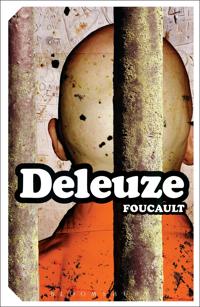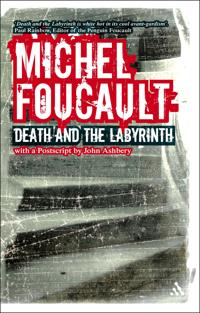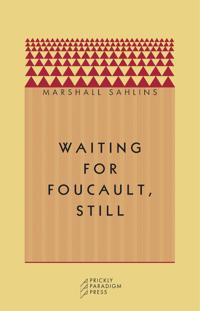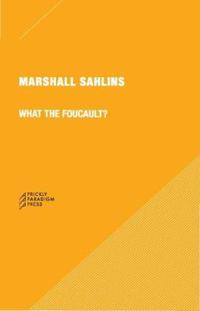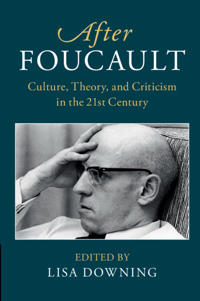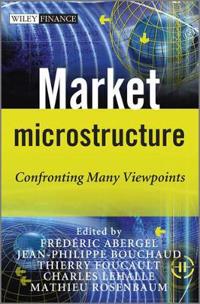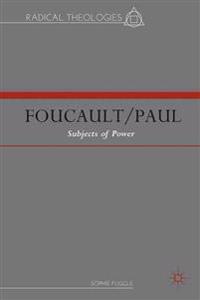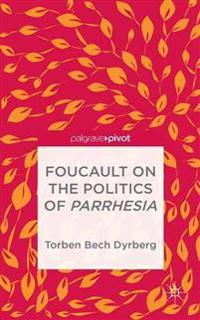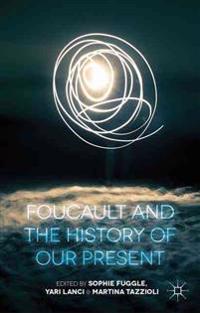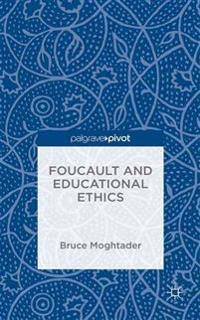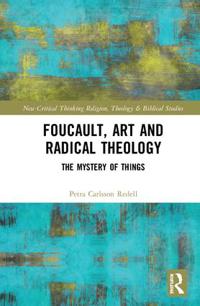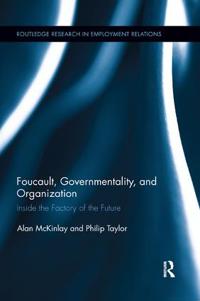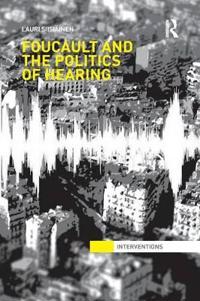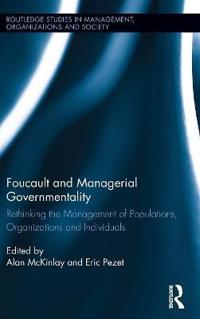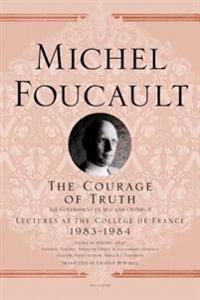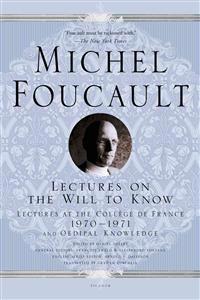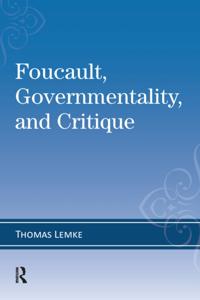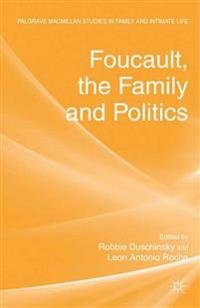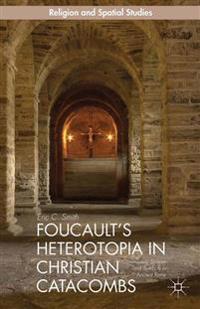Foucault (Pocket)
avTimothy O'leary
ISBN: 9780826456274 - UTGIVEN: 2002-11-28This comprehensive assessment of Michel Foucault's later work responds to the contemporary crisis in ethics, focusing on the way Foucault attempts to bring together the two seemingly-incompatible spheres of ethics and aesthetics through his reassessment of the Greek tradition.[...]
Foucault
ISBN: 9780826481689 - UTGIVEN: 2006-09The work of Michel Foucault has been extremely influential in fields as varied as philosophy, history, cultural studies, sociology and sexuality studies. In his later work, Foucault turned to the question of ethics. Working back through history, through the Christian interrogation of desire to the o[...]
Foucault (Häftad)
avGilles Deleuze
ISBN: 9780826490780 - UTGIVEN: 200603Giles Deleuze (1925-1995) was Professor of Philosophy at the University of Paris VIII. He is a key figure in poststructuralism and one of the most influential philosophers of the twentieth century. In "Foucault", Deleuze presents one of the most incisive and productive analyses of the work of Michel[...]
Death and the Labyrinth (Häftad)
avMichel Foucault
ISBN: 9780826493620 - UTGIVEN: 200611"Death and the Labyrinth" is unique, being Foucault's only work on literature. For Foucault this was "by far the book I wrote most easily and with the greatest pleasure". Here, Foucault explores theory, criticism and psychology through the texts of Raymond Roussel, one of the fathers of experimental[...]
Waiting for Foucault, Still (Häftad)
avMarshall Sahlins
ISBN: 9780971757509 - UTGIVEN: 200209First devised as after-dinner entertainment at a decennial meeting of the Association of Social Anthropologists in Great Britain, and first published by Prickly Pears Press in 1993, this expanded edition of "Waiting for Foucault" represents some of the brightest anthropological satire - mixed in wit[...]
What the Foucault?
ISBN: 9780996635547 - UTGIVEN: 2018-01This is the long-awaited fifth edition of Marshall Sahlins' classic series of bon mots, ruminations, and musings on the ancients, anthropology, and much else in between. It's been twenty-five years since Sahlins first devised some after-dinner entertainment at a decennial meeting of the Association [...]
After Foucault: Culture, Theory, and Criticism in the 21st Century
ISBN: 9781107140493 - UTGIVEN: 2018-06The work of Michel Foucault is much read, widely cited, and occasionally misunderstood. In response to this state of affairs, this collection aims to clarify, to contextualize, and to contribute to Foucauldian scholarship in a very specific way. Rather than offering either a conceptual introduction [...]
Market Microstructure Confronting Many Viewpoints (Häftad)
avAbergel, Frdric, Bouchaud, Jean-Philippe, Foucault, Thierry
ISBN: 9781119952411 - UTGIVEN: 201204The latest cutting-edge research on market microstructure Based on the December 2010 conference on market microstructure, organized with the help of the Institut Louis Bachelier, this guide brings together the leading thinkers to discuss this important field of modern finance.[...]
Foucault/Paul (Inbunden)
avSophie Fuggle
ISBN: 9781137326928 - UTGIVEN: 2013-07What is power? Where does it come from and who is in possession of it? How should we think about power and authority in a post-secular society in which traditional boundaries between individual and collective faith and secular governments and institutions are becoming increasingly blurred? The way w[...]
Michel Foucault
ISBN: 9781137351012 - UTGIVEN: 2015-12With special emphasis on Foucault's many recently published lecture series this book provides an updated, comprehensive presentation of his most important diagnoses, his many ground-breaking analytical concepts as well as a systematic account of his unique conception of philosophy.[...]
Foucault on the Politics of Parrhesia (Inbunden)
ISBN: 9781137368348 - UTGIVEN: 2014-03The late Foucault's discussions of truth-telling (parrhesia) revolve around freedom of speech and the quality of democracy: citizens' courage to speak truth to power as well as political authorities' courage to speak truthfully as to what must be done. The notion of parrhesia held particular interes[...]
Foucault and the History of Our Present
ISBN: 9781137385918 - UTGIVEN: 2015-02According to philosopher Michel Foucault, the 'history of the present' should constitute the starting point for any enquiry into the past and a critical ontology of ourselves. This book comprises a series of essays all centring on the question of the present or, rather, multiple presents which comp[...]
Foucault and Educational Ethics
ISBN: 9781137574954 - UTGIVEN: 2015-10In his works on ethics, Foucault turned towards an examination of one's relationship with oneself and others. This differs from the modern approaches that explore the relationship between and the responsibilities of actors to each other by adopting criteria. Ethical criteria engender assumptions abo[...]
Michel Foucault and Education Policy Analysis
ISBN: 9781138125735 - UTGIVEN: 2015-12The work of Michel Foucault has become a major resource for educational researchers seeking to understand how education makes us what we are. In this book, a group of contributors explore how Foucault's work is used in a variety of ways to explore the 'hows' and 'whos' of education policy - its tech[...]
Michel Foucault and Education Policy Analysis (häftad)
ISBN: 9781138308916 - UTGIVEN: 2017-11The work of Michel Foucault has become a major resource for educational researchers seeking to understand how education makes us what we are. In this book, a group of contributors explore how Foucault's work is used in a variety of ways to explore the 'hows' and 'whos' of education policy - its tech[...]
Foucault, Art, and Radical Theology
ISBN: 9781138334717 - UTGIVEN: 2018-08Michel Foucault wrote prolifically on many topics including, art, religion, and politics. He also eloquently articulated how power structures are formed and how they also might assist resistance and emancipation. This book uses the hermeneutical lens of Foucault's writings on art to examine the perf[...]
Foucault, Governmentality, and Organization (häftad)
ISBN: 9781138617117 - UTGIVEN: 2018-06This book traces how abstract managerial ideas about maximizing production flexibility and employee freedom were translated into concrete, day-to-day practices at the Motorola plant in East Kilbride, UK. Using eyewitness accounts, the book describes how employees dealt with the increased freedom Mot[...]
Michel foucault
ISBN: 9781138657083 - UTGIVEN: 2017-02This book explores the theoretical contribution of Michel Foucault to the fields of criminology, law, justice and penology. It surveys both the ways in which the work of Foucault has been applied in criminology, but also how his work can be used to understand and explain contemporary issues and poli[...]
Foucault & the Politics of Hearing
ISBN: 9781138851306 - UTGIVEN: 2014-11The issue of the senses and sensual perception in Michel Foucault's thought has been a source of prolific discussion already for quite some time. Often, Foucault has been accused of overemphasizing the centrality of sight, and has been portrayed as yet another thinker representative of Western ocula[...]
Foucault and Managerial Governmentality
ISBN: 9781138915664 - UTGIVEN: 2017-02In the last two decades there has been an explosion of research inspired by Michel Foucault's suggestion of a new concept, `governmentality'. The distinctive feature of modern governmentality is that across all sorts of fields, rule is predicated upon the active subject as the vehicle through which-[...]
The Courage of Truth: The Government of Self and Others II: 1983-1984 (Häftad)
avMichel Foucault, Frederic Gros
ISBN: 9781250009104 - UTGIVEN: 201205"The Courage of the Truth" is the last course that Michel Foucault delivered at the College de France. Here, he continues the theme of the previous year's lectures in exploring the notion of "truth-telling" in politics to establish a number of ethically irreducible conditions based on courage and co[...]
Lectures on the Will to Know (Häftad)
avMichel Foucault
ISBN: 9781250050106 - UTGIVEN: 2015-01"The Will to Know" reminds us that Michel Foucault's work only ever had one object: truth. Here, he builds on his earlier work, "Discipline and Punish," to explore the relationship between tragedy, conflict, and truth-telling. He also explores the different forms of truth-telling, and their relation[...]
Foucault, Governmentality, and Critique
ISBN: 9781317259527 - UTGIVEN: 2015-12Michel Foucault is one of the most cited authors in social science. This book discusses one of his most influential concepts: governmentality. Reconstructing its emergence in Foucault's analytics of power, the book explores the theoretical strengths the concept of governmentality offers for politica[...]
Foucault, the Family and Politics
ISBN: 9781349345656 - UTGIVEN: 2014-01Drawing on the writings of Foucault, this book explores the politics and power-dynamics of family life, examining how everyday obligations such as attending school, going to work and staying healthy are organized through the family. The book includes an essay by Foucault, Les desordres des familles [...]
Foucault?s Heterotopia in Christian Catacombs
ISBN: 9781349500130 - UTGIVEN: 2014-10The catacombs of Rome have captured imaginations for centuries. This innovative study takes a fresh look at these underground spaces, and considers how art, space, texts, and practices can tell us more about the catacombs and the people who dug and decorated them.[...]



